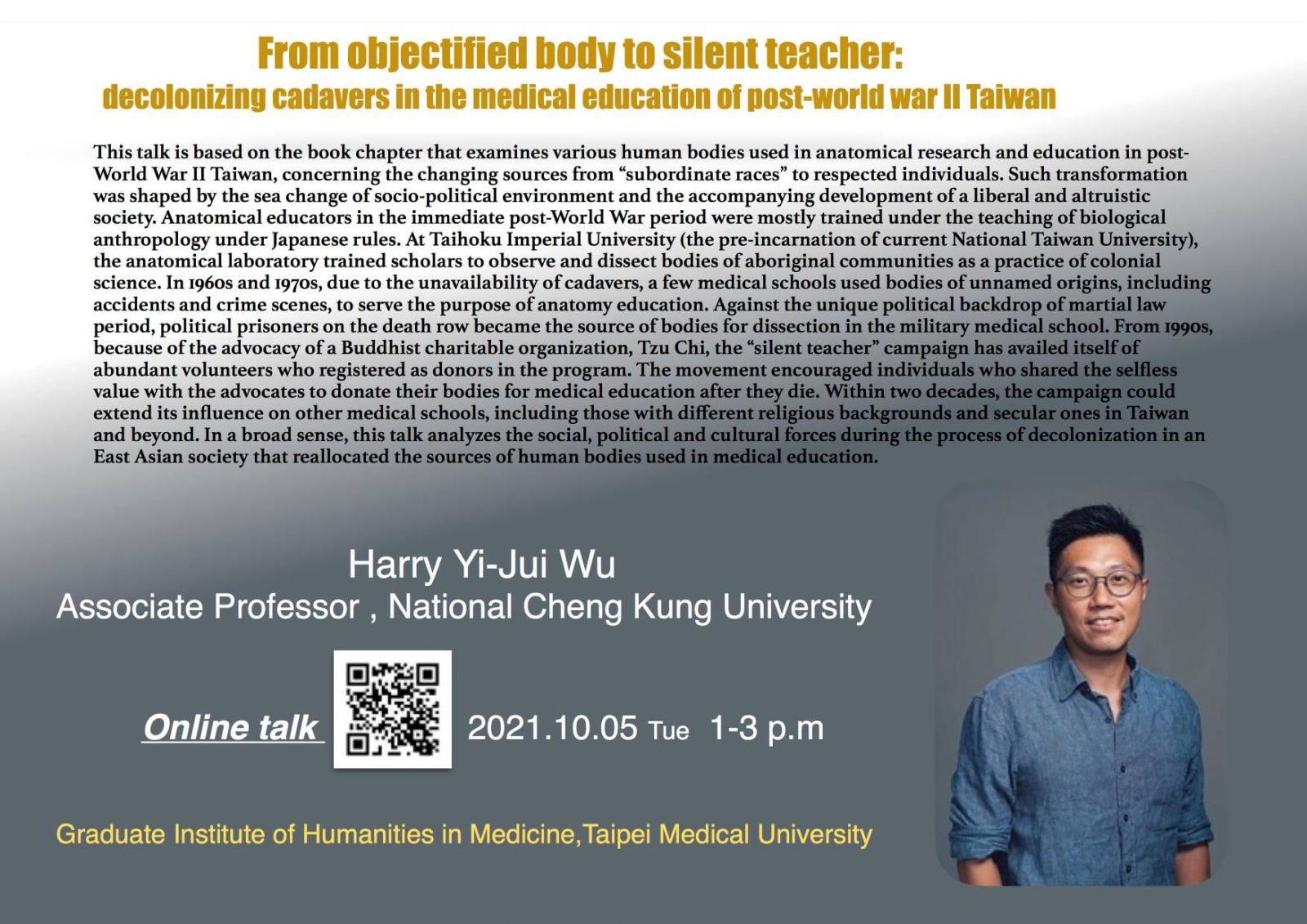From objectified body to silent teacher: decolonizing cadavers in the medical education of post-world war II Taiwan
▲Speaker─Harry Yi-Jui Wu(Associate Professor , National Cheng Kung University)
▲Date ─ 2021.10.05 1-3 p.m
▲Venue ─ Online talk. Graduate Institute of Humanities in Medicine, Taipei Medical University
▲Registration ─ Please contact me on Facebook to get the link.
▲Introduction:
This talk is based on the book chapter that examines various human bodies used in anatomical research and education in post-World War II Taiwan, concerning the changing sources from “subordinate races” to respected individuals. Such transformation was shaped by the sea change of socio-political environment and the accompanying development of a liberal and altruistic society. Anatomical educators in the immediate post-World War period were mostly trained under the teaching of biological anthropology under Japanese rules. At Taihoku Imperial University (the pre-incarnation of current National Taiwan University), the anatomical laboratory trained scholars to observe and dissect bodies of aboriginal communities as a practice of colonial science. In 1960s and 1970s, due to the unavailability of cadavers, a few medical schools used bodies of unnamed origins, including accidents and crime scenes, to serve the purpose of anatomy education. Against the unique political backdrop of martial law period, political prisoners on the death row became the source of bodies for dissection in the military medical school. From 1990s, because of the advocacy of a Buddhist charitable organization, Tzu Chi, the “silent teacher” campaign has availed itself of abundant volunteers who registered as donors in the program. The movement encouraged individuals who shared the selfless value with the advocates to donate their bodies for medical education after they die. Within two decades, the campaign could extend its influence on other medical schools, including those with different religious backgrounds and secular ones in Taiwan and beyond. In a broad sense, this talk analyzes the social, political and cultural forces during the process of decolonization in an East Asian society that reallocated the sources of human bodies used in medical education.





